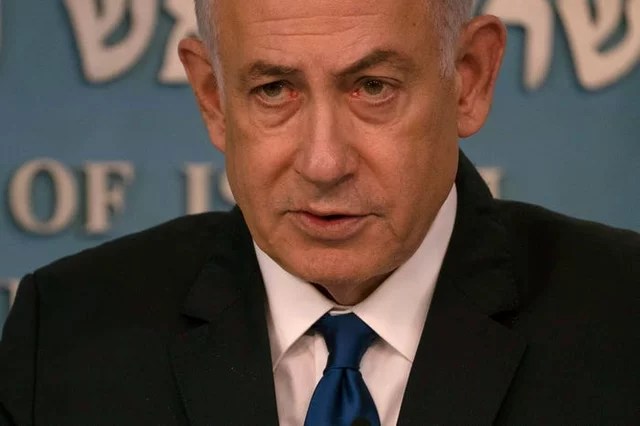Israel May Have Just Hit A Turning Point In Its War On Gaza — But Not For The Reason You Think

In Jerusalem and Tel Aviv, thousands flooded the streets in the past week in Israel’s largest protests since the onset of the Israel-Hamas war six months ago….CONTINUE READING
While the demonstrations have been rife with calls for Israeli Prime Minister Benjamin Netanyahu to resign and for a new election, it’s not these protests that should concern him most.
Instead, it’s demonstrations by Israel’s ultra-Orthodox Jews, fearful of mandatory conscription that they have long avoided, who may pose the biggest risk to Netanyahu’s already fragile grip on power.
Netanyahu is not a popular figure in Israel.
Critics fault him for failing for not securing the release of all hostages
taken captive on October 7 and allege he is prolonging the war to keep himself in power.
According to a recent poll by the Israel Democracy Institute, most Israelis (57%) think Netanyahu has performed poorly since the start of the Israel-Hamas conflict.
He’s also facing sharp criticism from international allies, with President Joe Biden calling the IDF’s recent killing of aid workers in Gaza “unacceptable,
” and Secretary of State Antony Blinken suggesting that the US’s support of Israel may reach its limit. On Friday the IDF fired two officers involved.
Despite internal discord and international condemnation, Netanyahu has a history of enduring. He survived mass protests against his judicial overhaul plan last year that seemed to herald his political end.
To prevent his downfall, and continue Israel’s current court in Gaza, Netanyahu only has one job: keeping his far-right coalition government intact.
Comprised of hardline, religiously conservative, nationalist lawmakers staunchly opposed to a two-state solution, this coalition is unlikely to be swayed by global outrage over Israel’s actions in Gaza.
But protests by ultra-Orthodox Jews could spell disaster for him, exposing possible fractures in the far-right coalition government he has so far been able to maintain.
The protests stem from an upcoming move to conscript Haredi yeshiva students into the Israeli military.
Yeshiva students, pupils of Jewish religious institutions, have historically been exempt from Israel’s otherwise widespread draft. Plus, they’ve been allowed to live on government stipends.
The rationale — now under intense scrutiny — is that their religious studies constitute a form of national service that protects the state from foreign enemies.
With the majority of Jewish Israeli men and many Jewish women required to serve, secular Israelis have long rankled at the exemption.
The sentiment has intensified since October 7 and Israel’s subsequent invasion of Gaza, which saw a massive mobilization of reservists and hundreds of IDF casualties. According to a recent poll by the Israel Democracy Institute, 64% of the population wants the exemptions to end.
Late last month, Israel’s High Court of Justice force the issue, handing down an interim order, effective April 1, barring the government from providing funds to yeshivas unless their students serve.
It has proven a formidable challenge to Netanyahu’s coalition, which contains elements which both strongly support and strongly oppose the exemptions.
Within Netanyahu’s Likud party, Defense Minister Yoav Gallant wants to end them.
He said last month: “The army is in need of manpower now. It’s not a matter of politics, it’s a matter of mathematics.”
War minister Benny Gantz, seen as the potential successor to Netanyahu, agreed, and threatened to quit over the issue.
Gantz exiting would not bring down the government — but if enough elements of the coalition followed suit, it would cause collapse.
On the other side, coalition members like the United Torah Judaism or Shas parties have threatened to bring down the government unless the funding is protected.
Netanyahu’s potential ouster would undoubtedly have huge consequences for Israel’s operations in Gaza, and could prove more decisive than any outside intervention.
Netanyahu’s challenge is either to negotiate a compromise or call one side’s bluff and hope that they don’t follow through on their threats.



